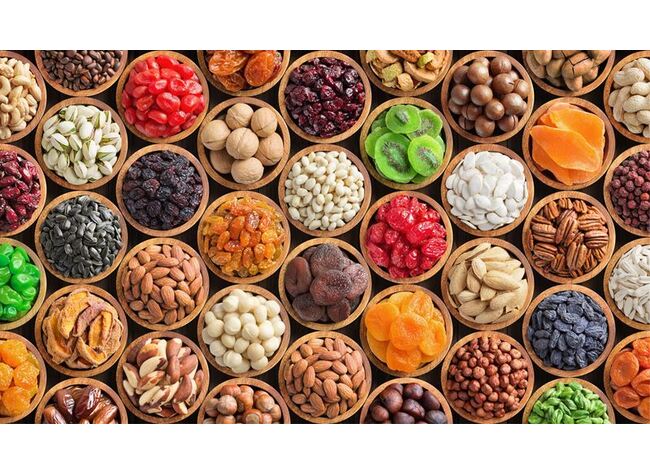Introduction
Private label specialized foods have acquired tremendous popularity in the last few years. With consumers looking for one-of-a-kind and customized food choices, private label foodstuff have actually ended up being a best selection for numerous. In this write-up, we will look into the detailed procedure of private label food manufacturing, checking out the actions included and the principals in the industry.

The Surge of Private Label Food Manufacturers in Australia
Australia has actually experienced a substantial surge secretive label food suppliers. With customers coming to be a lot more aware concerning their dietary choices and demanding premium products, private label food production has emerged as a lucrative organization opportunity. These makers satisfy different segments, consisting of exclusive tag cheese, junk food suppliers, and more.
Understanding Private Label Food Manufacturing
Private label food production includes developing and creating food for stores or services that after that market these products under their very own trademark name. This process enables merchants to give special offerings to their customers without spending heavily in research and development or manufacturing infrastructure.
Key Steps Involved in Private Label Food Manufacturing
Step 1: Product Growth and Customization
Private tag food makers work very closely with merchants to recognize their demands and establish personalized products. This action involves brainstorming sessions, market private label food products research, and recipe formula. Private label specialty foods are made to deal with certain customer choices and dietary needs.
Step 2: Sourcing Ingredients
Once the product requirements are finalized, private label food producers resource premium active ingredients from trusted distributors. They ensure that all active ingredients satisfy rigorous quality standards and comply with policies set by appropriate authorities.

Step 3: Production and Packaging
After obtaining the components, private label food production starts. The manufacturing facilities make use of advanced equipment and follow stringent health methods to produce secure and tasty foodstuff. Product packaging is also an indispensable part of this action, making sure that the product continues to be fresh while attracting consumers.
Step 4: Quality Control and Testing
Private label food producers conduct rigorous quality assurance checks at every stage of the manufacturing procedure. This consists of evaluating the ingredients, monitoring assembly line, and carrying out sensory assessments. These actions make sure that the end product meets the highest quality standards.
Step 5: Labeling and Compliance
Once the products are manufactured and top quality checked, private label food suppliers manage labeling and compliance. They make sure that all info on the item tags is precise and complies with governing standards. This action is critical to give customers with transparent information regarding the item's components and dietary values.
Advantages of Private Label Food Manufacturing
Private tag food production provides several advantages for both retailers and consumers. Allow's check out some of these benefits:
Customization: Retailers have the freedom to create one-of-a-kind items customized to their target audience, permitting them to differentiate themselves from competitors.
Cost-effectiveness: Private label food producers use economical services by getting rid of the demand for stores to buy research, advancement, and production infrastructure.
Control over branding: Retailers can develop their brand photo by marketing personal label foods under their own name. This allows them to develop trust and loyalty amongst consumers.
Flexibility: Private label food manufacturing provides sellers with flexibility in regards to item offerings. They can easily adapt to changing consumer fads and preferences.
Higher revenue margins: With minimized manufacturing expenses, retailers can delight in greater revenue margins on private label food products contrasted to branded alternatives.
Quality assurance: Private label food makers prioritize quality control steps, making sure that stores get constant and high-grade items for their customers.
FAQs about Private Label Food Manufacturing
Q1: What is the function of private label food manufacturers?
A1: Private label food makers play an important role in producing tailored food products for stores or organizations who market them under their very own brand name.
Q2: Just how does private label food production advantage retailers?
A2: Private label food manufacturing enables sellers to use distinct items, develop their brand photo, and take pleasure in higher revenue margins compared to branded alternatives.
Q3: Can private label food makers cater to details nutritional preferences?
A3: Yes, private label food makers can develop items customized to specific dietary demands and preferences, consisting of gluten-free, vegan, or organic options.
Q4: Are there any kind of guidelines controling private label food manufacturing?
A4: Yes, private label food suppliers must adhere to laws established by relevant authorities concerning component sourcing, labeling, and top quality control.
Q5: Can private label food producers handle large-scale production?
A5: Yes, private label food suppliers have the capabilities to manage both small and large production based on the seller's requirements.
Q6: Just how can sellers ensure the high quality of private label food products?
A6: Sellers must collaborate with reputable private label food manufacturers that focus on strict quality control measures and have a track record of supplying remarkable products.
Conclusion
Private label food manufacturing provides a globe of chances for sellers looking to offer special and customized offerings to their customers. With a structured process involving product growth, ingredient sourcing, production, packaging, and quality control, private tag specialty foods have actually gained immense popularity. By partnering with dependable private label food producers in Australia or any kind of various other region, merchants can establish their brand name identity while appreciating cost-effectiveness and adaptability in their product offerings. So why wait? Study the exciting world of personal label foods today!